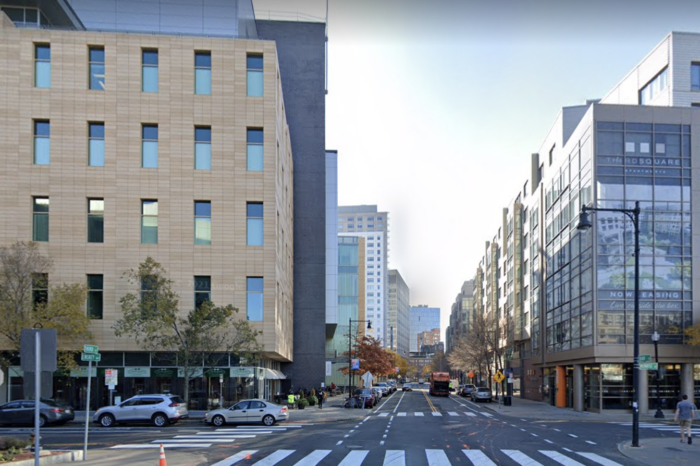University Science Research Is Under Threat
Earlier this year, Secretary of Health and Human Services Xavier Becerra and the Commerce Department made an announcement that should have sent shock waves through Boston’s university community. The federal government announced the formation of a working group to “develop a framework for the implementation of the march-in provision of the Bayh-Dole Act.”
This doesn’t sound too threatening, but “implementation of the march-in provision” would have serious adverse consequences for university research.
The 1980 Bayh-Dole Act created the current, vibrant university research system under which universities can license their patents to commercial entities and collect royalties, while the companies purchasing the patent have the expertise and money to mass produce the invention and bring it to market.
Before this legislation, the government controlled any patents that were developed with federal funds, and universities could not license these patents to commercial entities. Without being able to hold the patent, commercial companies were not interested in collaborating with universities, as any new product could quickly be copied by others as soon as it got to market.
As the Congressional Research Service described the problem in the lead-up to the Bayh-Dole law, “Congress instead accepted the proposition that the lack of patent title discouraged private enterprise from advancing early-stage technologies into the marketplace.”
The Bayh-Dole law encouraged commercial-university collaborations, as universities could now lose any patents that were developed with federal funds if they did not move toward commercialization within a reasonable time frame through the law’s march-in provision—as in, “we will march in and take your patent.”
The fact is that Bayh-Dole is working, as detailed in this brief.
Yet, the Biden administration’s working group is considering utilizing the march-in provision to force lower drug prices on any product developed with federal funds.
For example, a Cambridge biotech company that licensed a patent on a molecule from an NIH-funded Harvard lab could be stripped of its patent if the government did not like their drug price. In all likelihood, the government would then allow a generic company to manufacture the product and sell it more cheaply.
The authors of the Bayh-Dole Act did not see the law as a way to lower drug prices. When the issue of march-in rights came up in 2002, the late senators Bayh and Dole, authors of the law, wrote in the Washington Post that “Bayh-Dole did not intend that government set prices on resulting products … the law instructs the government to revoke such licenses only when the private industry collaborator has not successfully commercialized the invention as a product.”
While we can debate the jurisprudence of march-in rights to reduce drug prices, that debate is irrelevant to the impact such an action would have on university research. Commercial collaborations and royalties would dry up dramatically, and companies would avoid university patents like the plague. No commercial company would want to collaborate on a university patent if the government could ultimately set the price for the resulting invention.
This problem would not only exist in drug discovery.
Suppose an MIT lab, funded by the National Science Foundation, were researching quantum science, and wanted to license one of its patents to a computer company. Would any commercial computer company partner with MIT on this technology if it were the practice of the federal government to march in, take the patent, and grant it to another company that promised a lower price?
Finally, a march-in system would be an invitation to cronyism on a grand scale, with political donors from big businesses lobbying the White House to obtain the patent rights of a competitor’s drug or invention through a march-in. If you think that is a cynical view, you don’t know Washington!
But the most devastating impact of a march-in system of patents would be upon university research. The Bayh-Dole Act fostered an amazing ecosystem of scientific research cooperation between commercial companies and universities. But that ecosystem is fragile. It is alarming that Boston’s university community has not spoken out loudly to protect university research.



